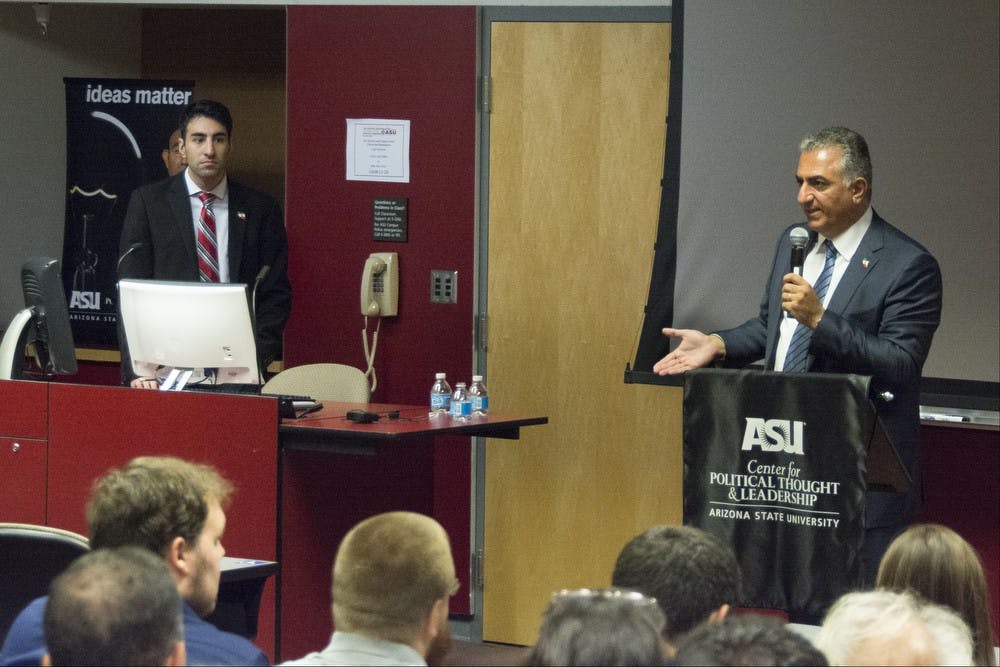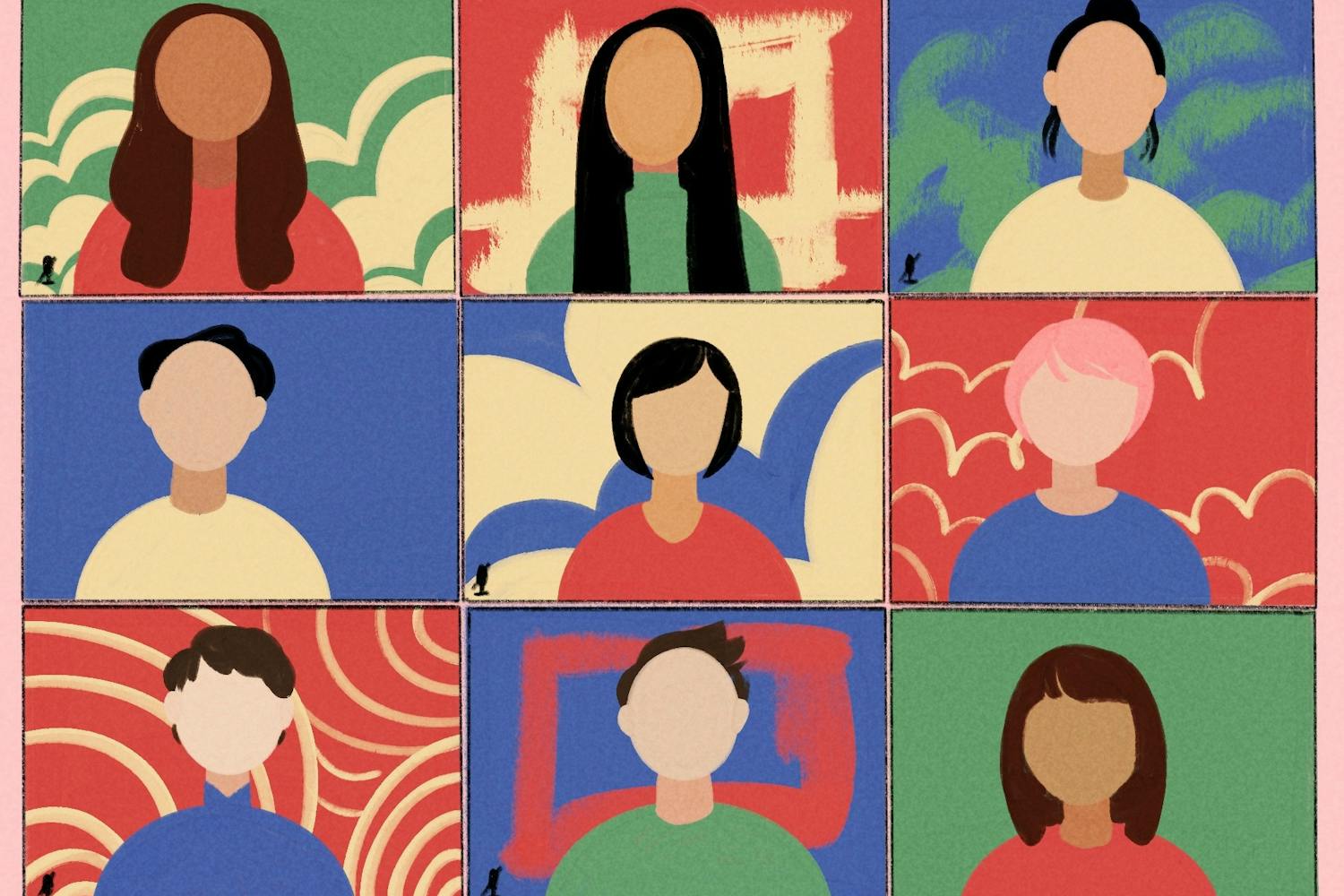While most Americans may only hear about Iran in the context of nuclear deals, The Crown Prince of Iran Reza Pahlavi reminded ASU students that the issues the country faces are deeper than that.
Pahlavi was on the Tempe campus Friday to speak about foreign policy issues and democracy as part of ASU's Center for Political Thought and Leadership "Ideas Matter" initiative.
"Many of us Iranians know very well that Iran's problem is far more than just what the outside world perceives as a potential threat in terms of a nuclear agenda," Pahlavi said.
Pahlavi, the eldest son of the late Shah of Iran, was exiled from his homeland at 17-years-old. Since the establishment of Iran's clerical regime, Pahlavi has not been able to return to the country. Pahlavi has established his own initiative for Iran — becoming an advocate for freedom, democracy and human rights for the people of Iran.
His Majesty Reza Pahlavi: Iran is faced with the absence of free debate today pic.twitter.com/ThqAWUEN8p
— Allie Bice (@alliebice) October 16, 2015
About 150 people attended the event to hear Pahlavi talk about the complex issues Iran is faced with. Audience members ranged from people of the community, students, supporters of Pahlavi and workers for the Center.
Pahlavi began his address by saying an academic place with a free flow of information and education, like ASU, is a key component in a society. Injustice would be limited in a society with this kind of freedom.
"Sadly, this is one of the things that Iran, today, is faced with," Pahlavi said. "The absence of free debate, of information, of gathering and organizing yourselves, of a simple labor union to having free elections."
Pahlavi also talked about what the new era of technology means for Iran's relationship with the rest of the world. The Prince said the new forms of communication are making the world aware of what's happening. He mentioned that we can track forms of thought through these social media sites like Facebook and Twitter.
"Information is ultimately available and ultimately reachable," Pahlavi said.
Pahlavi emphasized that Iran's demise began in 1977, when Ruhollah Khomeini rose to power. He said multiple attempts of reformation have failed due to Iran's current leader, Ali Khamenei.
"(That) prompts the question: Is this going to be the answer for Iran's future?" Pahlavi said. "Is this going to be the answer for our environmental problems? Our social justice issues? Hunger? Poverty?"
Pahlavi on reform in Iran: "The potential in changing Iran is imminent." @statepress
— Allie Bice (@alliebice) October 16, 2015
Iran's issues are not being addressed due to severe government corruption, and the country's resources are being eaten up by the corrupt regime currently in power, which has no interest in what's best for Iran, he said.
The Prince expressed his support for the nuclear Iran deal negotiated in July, because the deal provides Iranians with more resources. With more resources comes more incentive for the people to revolt against the regime.
The Prince received large rounds of applause from audience members as he spoke about Iran's future and a secular government.
Pahlavi on injustice, Islamic regime, and ISIS "Our society cannot take much more of this." @statepress
— Allie Bice (@alliebice) October 16, 2015
Khashayar Khatiri, political science and economics sophomore and member of the Center, said he was happy to help organize the event on behalf of the Center and meet the crown prince for the second time.
"His majesty is a legendary figure among Iranians," Khatiri said. "He's a very knowledgeable guy with a very unique story."
Donald Critchlow, director of the Center for Political Thought and Leadership, also praised the Prince's character.
"A man who can go through tragedy and still remain an optimist and look to the future is a man of great character."
Reach the reporter at ambice@asu.edu or follow @alliebice on Twitter.
Like The State Press on Facebook and follow @statepress on Twitter.




